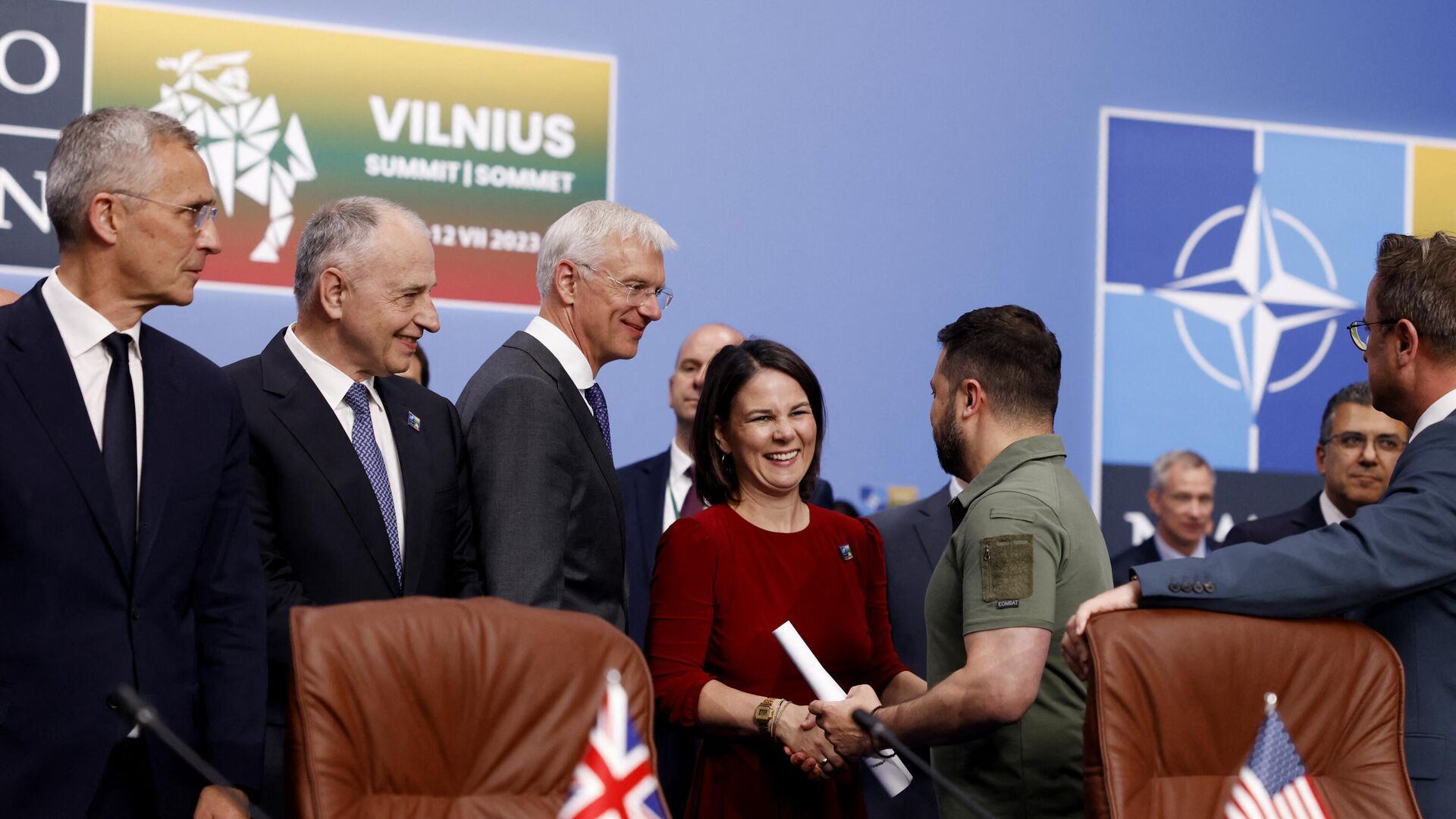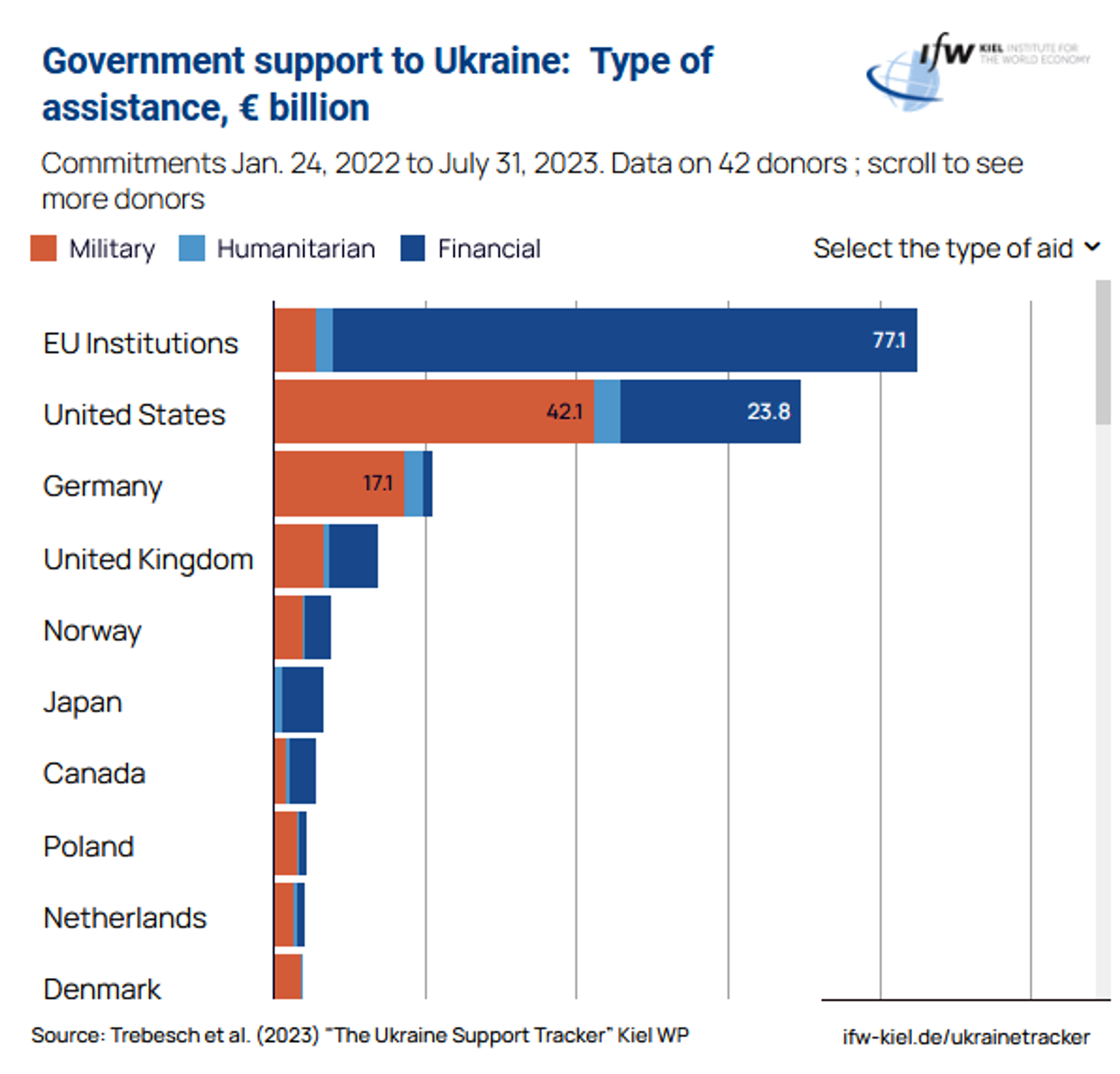https://sputnikglobe.com/20231206/which-of-ukraines-erstwhile-allies-have-fled-sinking-ship-of-support-1115424965.html
Which of Ukraine’s Erstwhile ‘Allies’ Have Fled Sinking Ship of Support?
Which of Ukraine’s Erstwhile ‘Allies’ Have Fled Sinking Ship of Support?
Sputnik International
Washington assembled what officials hailed as a “broad international coalition” of support for Ukraine in the proxy war against Russia in 2022, marshalling over $175 billion in assistance, including weapons and cash to keep Kiev afloat economically. Close to two years on, many of America’s allies look like they’re reaching the end of their ropes.
2023-12-06T11:40+0000
2023-12-06T11:40+0000
2023-12-06T12:24+0000
ukraine
kiev
russia
robert fico
boris pistorius
vladimir putin
european union (eu)
nato
russian foreign ministry
world
https://cdn1.img.sputnikglobe.com/img/07e7/0b/1e/1115305755_0:158:3079:1890_1920x0_80_0_0_f1860d4b5254c5b2908d71a1a2211218.jpg
German Defense Minister Boris Pistorius distanced Berlin from Kiev, stressing that the “partnership” between the two countries does not constitute an “alliance,” and complaining that Russia’s sanctions-resistant weapons industry has made Ukraine’s military strategy more difficult.Pistorius noted that it’s not as if Kiev has been receiving arms aid while Russia has gotten nothing. “It’s not the case that we only deliver [weapons] and nothing new comes from Russia for the Russian armed forces,” he said. On the contrary, in spite of sanctions, Russia’s defense sector continues to produce equipment, “even if it’s not the most modern materiel,” in the German defense minister’s estimation.Admitting that the production of German weapons and ammunition for Ukraine was going slower than planned, Pistorius stressed that the slow delivery was neither a political nor a financial issue, but a problem of limited “peacetime” production capacity which he said takes time to ramp up. Pistorius also reassured that Germany has been and continues to be by far the second largest sponsor of Kiev overall.Russian Foreign Ministry spokeswoman Maria Zakharova jumped at the German official’s “ally” comment, suggesting Pistorious has “unwrapped a brand new pair of loafers he got last Christmas and ‘changed his shoes,’” a Russian saying meaning "reversing one’s position" or "changing one’s tune."What Other Countries Have ‘Changed Their Shoes’ on Ukraine?Germany has to date been by far the largest individual supporter of Ukraine among any country besides the United States, committing some $18.4 billion in military aid, and over $4.1 billion in economic and humanitarian assistance, not counting Berlin’s support for European Union institutions’ aid funds.In light of Pistorius’ comments, it’s worth recalling that Berlin is far from the only European NATO ally to have changed its tune on support for the bloc’s “Ukrainian allies.”PolandPoland, the alliance member bordering Ukraine to the West, has been a conduit for Western arms flow to Ukraine throughout the current crisis, and actively cheerled Kiev politicians’ push to break off from its historic relationship with Moscow and join Western institutions going back to the 2005 color revolution and the 2014 coup.That began to change in the summer, with a spat over Ukrainian agribusiness’s habit of dumping produce and livestock in Poland and undercutting local farmers, combined with economic problems stemming from the EU’s shortsighted decision to attempt to sanction Russia into submission, culminating in Polish President Andrzej Duda’s characterization of Ukraine in September as a “dangerous drowning man” that threatens to “drag” others, including Poland, down with it into oblivion.Poland, the seventh-largest donor to Kiev militarily and economically to date, has scaled back its weapons aid, while politicians have called on Volodymyr Zelensky, and Brussels, to compensate Warsaw for the assistance already provided.SlovakiaPoland isn’t the only one of Ukraine’s western neighbors to scale back its support to Kiev in recent months. In late October, Slovakia’s newly elected Prime Minister, Robert Fico, announced that Bratislava would “no longer supply weapons to Ukraine,” saying humanitarian supplies would be the only support the country will send going forward.Fico, whose country similarly suffered the economic impact of Ukrainian agro-businesses’ dumping policy, also has some words of advice for Brussels, suggesting that “the EU should change from an arms supplier to a peacemaker.”Western EuropeIn wealthier Western European countries too, officials have carefully expressed their displeasure over the Ukrainian crisis in more obscure ways. In October, for example, Norway joined a growing number of nations brainstorming ways to pay off Ukrainian refugees living in the country to go back home. In neighboring Finland, law enforcement officials broke the taboo on Kiev’s corruption problems and their impact domestically a year earlier, reporting that arms destined for arms were somehow ending up in the hands of local gangs.United StatesIn Washington – the ultimate benefactor determining Ukraine’s military and economic fate, officials have privately sent out feelers for possible peace talks in media in recent weeks, amid wrangling in Congress between MAGA Republicans on one side, and Democrats and the more traditional neocon foreign policy hawk wing of the GOP on the other.In his media interview this week, Pistorius emphasized that Berlin would continue to stay the course in paying into the proxy war in Ukraine. Over in Washington, too, President Joe Biden emphasized on Tuesday that “the failure to support Ukraine” would be “absolutely crazy” and “just wrong.”But the German defense minister’s decision to emphasize that Kiev is not an ally, when viewed against the backdrop of other erstwhile “allies” stepping back on their assistance, signals if nothing else a tonal shift away from the West’s erstwhile bravado-filled rhetoric about Ukraine’s “European future” and the prospect of NATO membership.
https://sputnikglobe.com/20231012/gratitudes-not-currency-ukraine-needs-to-pay-up-for-aid-says-polish-politician-1114127572.html
https://sputnikglobe.com/20231108/slovak-govt-blocks-proposal-of-their-predecessors-to-send-military-aid-to-ukraine-1114812755.html
https://sputnikglobe.com/20231206/eu-overpaid-185-bln-for-gas-due-to-russia-sanctions--1115419103.html
https://sputnikglobe.com/20231205/no-more-aid-for-ukraine-under-new-us-house-speaker-1115408809.html
ukraine
kiev
russia
Sputnik International
feedback@sputniknews.com
+74956456601
MIA „Rossiya Segodnya“
2023
News
en_EN
Sputnik International
feedback@sputniknews.com
+74956456601
MIA „Rossiya Segodnya“
Sputnik International
feedback@sputniknews.com
+74956456601
MIA „Rossiya Segodnya“
ukraine, kiev, united states, poland, germany, slovakia, assistance, aid, support
ukraine, kiev, united states, poland, germany, slovakia, assistance, aid, support
Which of Ukraine’s Erstwhile ‘Allies’ Have Fled Sinking Ship of Support?
11:40 GMT 06.12.2023 (Updated: 12:24 GMT 06.12.2023) Washington assembled what officials hailed as a “broad international coalition” of support for Ukraine in the proxy war against Russia in 2022, marshalling over $175 billion in assistance, including weapons and cash to keep Kiev afloat economically. Close to two years on, many of America’s allies look like they’re reaching the end of their ropes.
German Defense Minister Boris Pistorius distanced Berlin from Kiev, stressing that the “partnership” between the two countries does not constitute an “alliance,” and complaining that Russia’s sanctions-resistant weapons industry has made Ukraine’s military strategy more difficult.
“We are not partners within an alliance,” Pistorius told German media on Tuesday, when asked about the criticism that Ukraine has received too little arms from Germany and other partners. “We deliver what we can. The same applies to almost all other allies and partners,” the minister said.
Pistorius noted that it’s not as if Kiev has been receiving arms aid while Russia has gotten nothing. “It’s not the case that we only deliver [weapons] and nothing new comes from Russia for the Russian armed forces,” he said. On the contrary, in spite of sanctions, Russia’s defense sector continues to produce equipment, “even if it’s not the most modern materiel,” in the German defense minister’s estimation.
Admitting that the production of German weapons and ammunition for Ukraine was going slower than planned, Pistorius stressed that the slow delivery was neither a political nor a financial issue, but a problem of limited “peacetime” production capacity which he said takes time to ramp up. Pistorius also reassured that Germany has been and continues to be by far the second largest sponsor of Kiev overall.
Russian Foreign Ministry spokeswoman Maria Zakharova jumped at the German official’s “ally” comment, suggesting Pistorious has “unwrapped a brand new pair of loafers he got last Christmas and ‘changed his shoes,’” a Russian saying meaning "reversing one’s position" or "changing one’s tune."
What Other Countries Have ‘Changed Their Shoes’ on Ukraine?
Germany has to date been by far the largest individual supporter of Ukraine among any country besides the United States, committing some
$18.4 billion in military aid, and over $4.1 billion in economic and humanitarian assistance, not counting Berlin’s support for European Union institutions’ aid funds.
In light of Pistorius’ comments, it’s worth recalling that Berlin is far from the only European NATO ally to have changed its tune on support for the bloc’s “Ukrainian allies.”
Poland, the alliance member bordering Ukraine to the West, has been a conduit for Western arms flow to Ukraine throughout the current crisis, and actively cheerled Kiev politicians’ push to break off from its historic relationship with Moscow and join Western institutions going back to the 2005 color revolution and the 2014 coup.
That began to change in the summer, with a spat over Ukrainian agribusiness’s habit of dumping produce and livestock in Poland and undercutting local farmers, combined with economic problems stemming from the EU’s shortsighted decision to attempt to sanction Russia into submission,
culminating in Polish President Andrzej Duda’s characterization of Ukraine in September as a “dangerous drowning man” that threatens to “drag” others, including Poland, down with it into oblivion.
Poland, the seventh-largest donor to Kiev militarily and economically to date, has scaled back its weapons aid, while politicians have called on Volodymyr Zelensky, and Brussels, to compensate Warsaw for the assistance already provided.
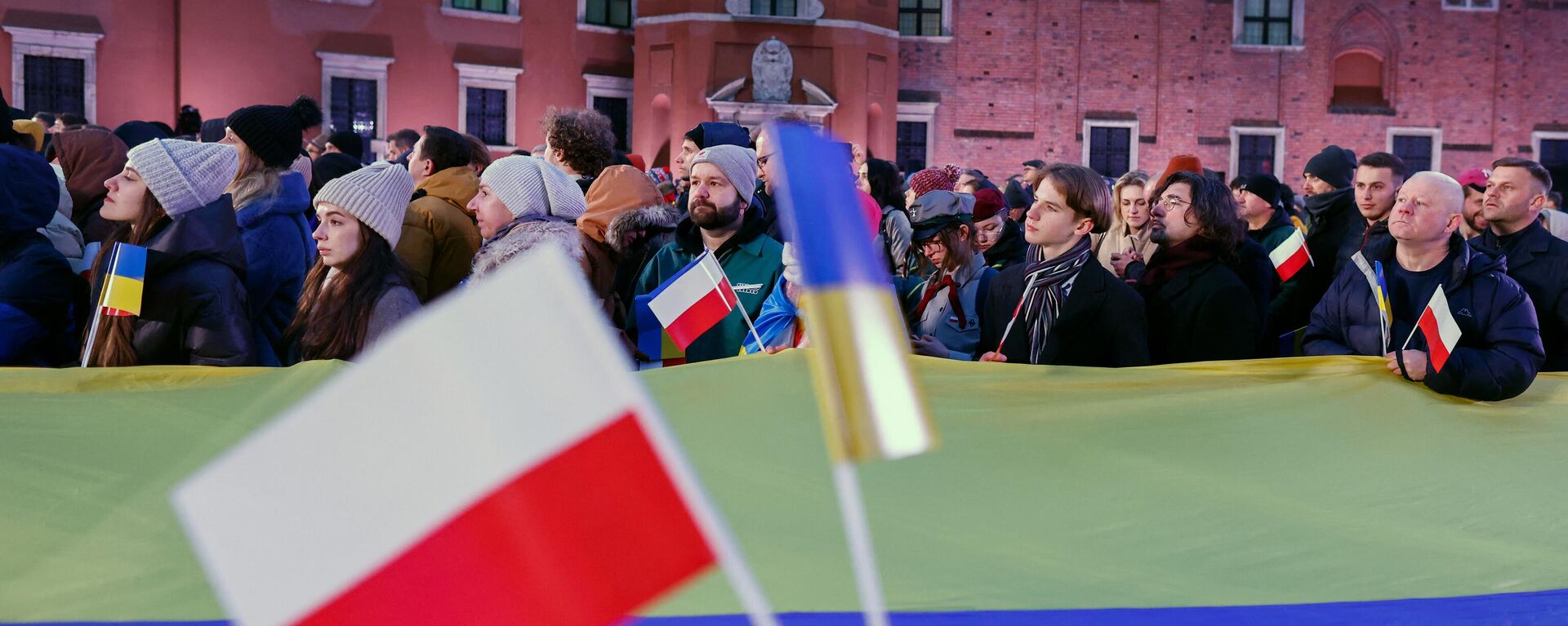
12 October 2023, 13:00 GMT
Poland isn’t the only one of Ukraine’s western neighbors to scale back its support to Kiev in recent months. In late October, Slovakia’s newly elected Prime Minister, Robert Fico, announced that Bratislava would “no longer supply weapons to Ukraine,” saying humanitarian supplies would be the only support the country will send going forward.
Fico, whose country similarly suffered the economic impact of Ukrainian agro-businesses’ dumping policy, also has some words of advice for Brussels, suggesting that “the EU should change from an arms supplier to a peacemaker.”
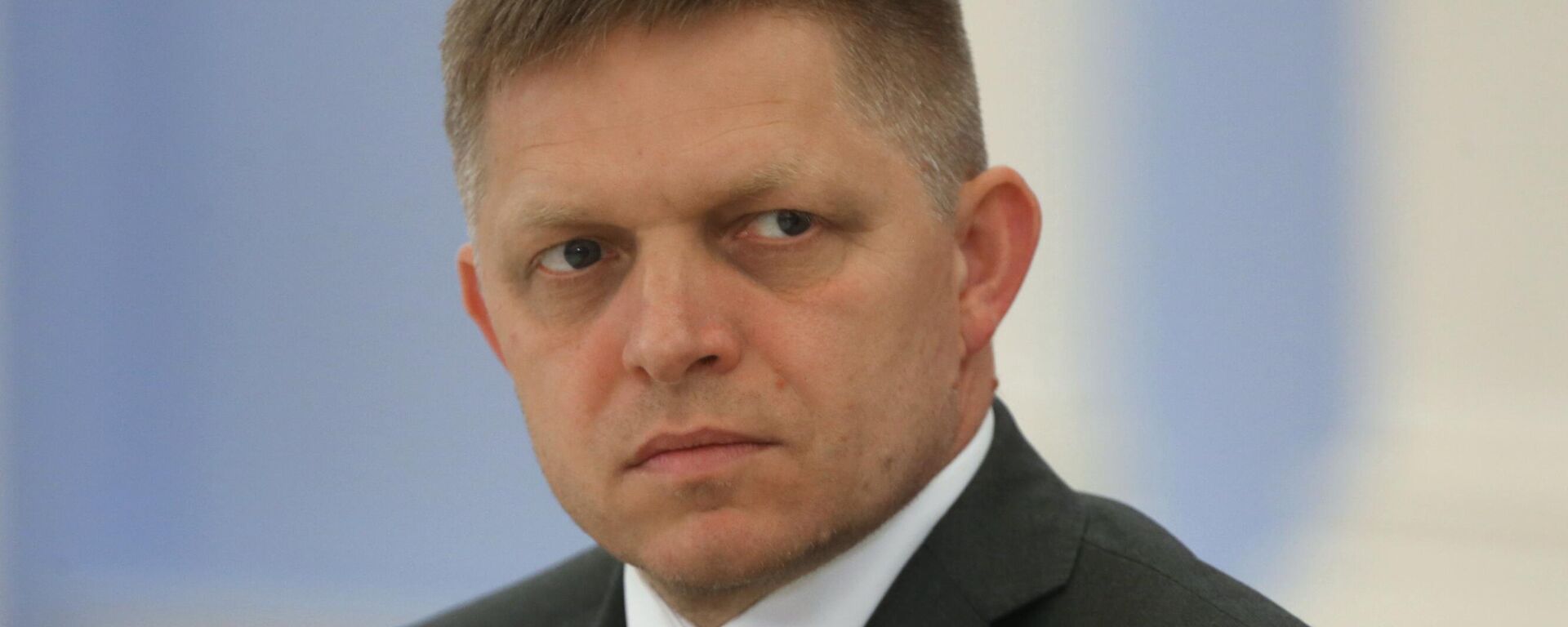
8 November 2023, 11:08 GMT
In wealthier Western European countries too, officials have carefully expressed their displeasure over the Ukrainian crisis in more obscure ways. In October, for example, Norway
joined a growing number of nations brainstorming ways to pay off Ukrainian refugees living in the country to go back home. In neighboring Finland, law enforcement officials broke the taboo on Kiev’s corruption problems and their impact domestically a year earlier,
reporting that arms destined for arms were somehow ending up in the hands of local gangs.
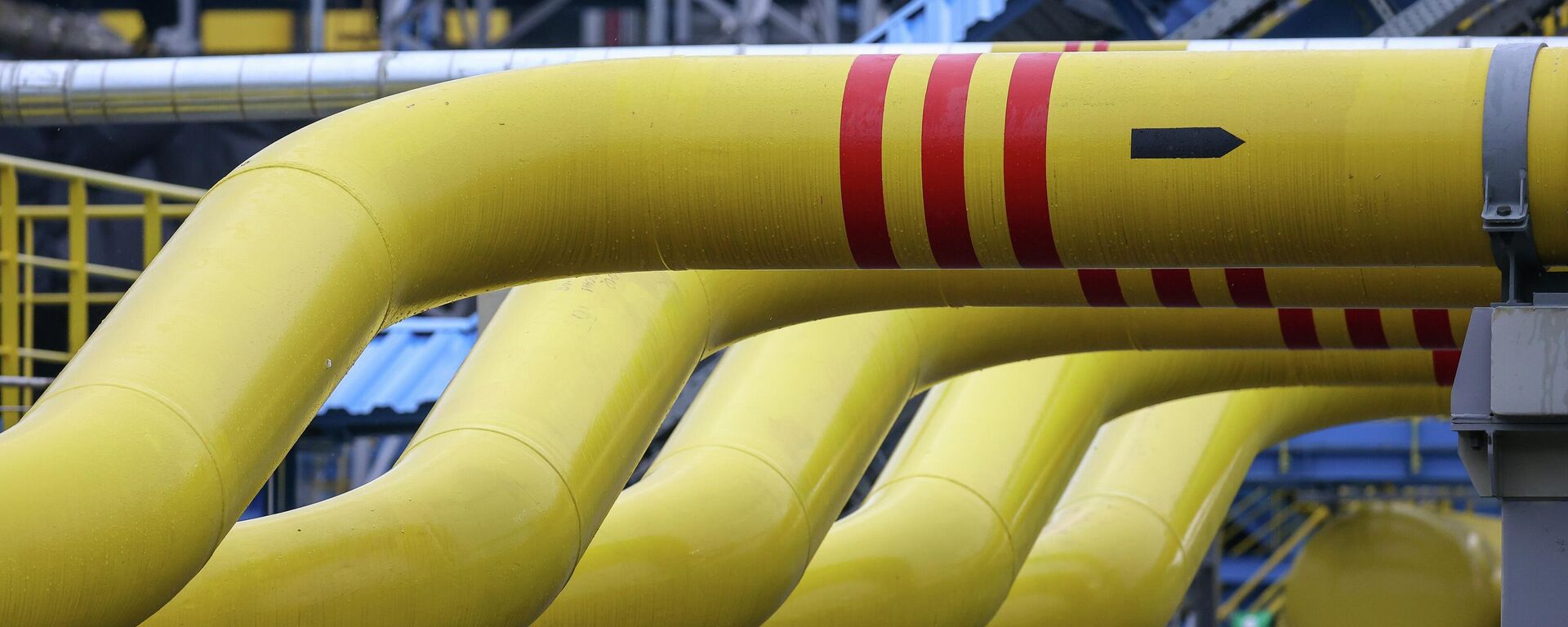
6 December 2023, 06:44 GMT
In Washington – the ultimate benefactor determining Ukraine’s military and economic fate, officials have
privately sent out feelers for possible peace talks in media in recent weeks, amid
wrangling in Congress between MAGA Republicans on one side, and Democrats and the more traditional neocon foreign policy hawk wing of the GOP on the other.
In his media interview this week, Pistorius emphasized that Berlin would continue to stay the course in paying into the proxy war in Ukraine. Over in Washington, too, President Joe Biden emphasized on Tuesday that “the failure to support Ukraine” would be “absolutely crazy” and “just wrong.”
But the German defense minister’s decision to emphasize that Kiev is not an ally, when viewed against the backdrop of other erstwhile “allies” stepping back on their assistance, signals if nothing else a tonal shift away from the West’s erstwhile bravado-filled rhetoric about Ukraine’s “European future” and the prospect of NATO membership.
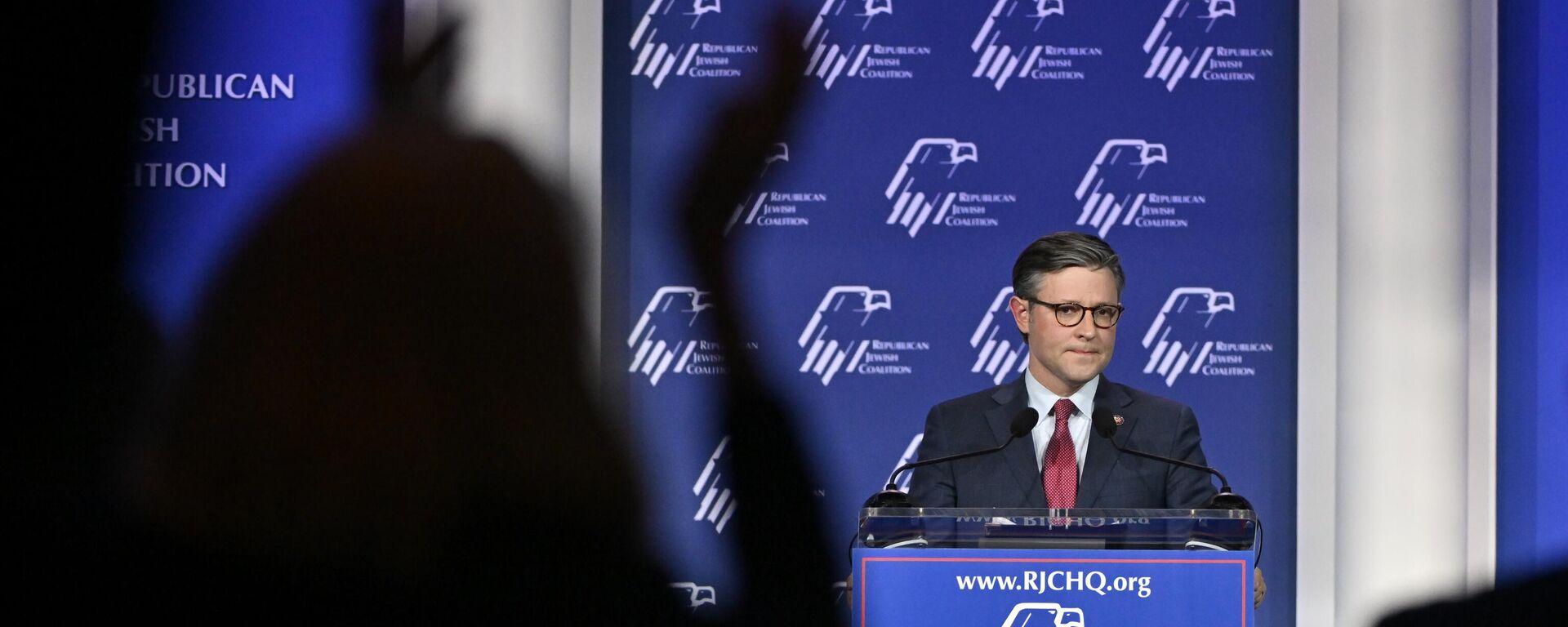
5 December 2023, 17:29 GMT
